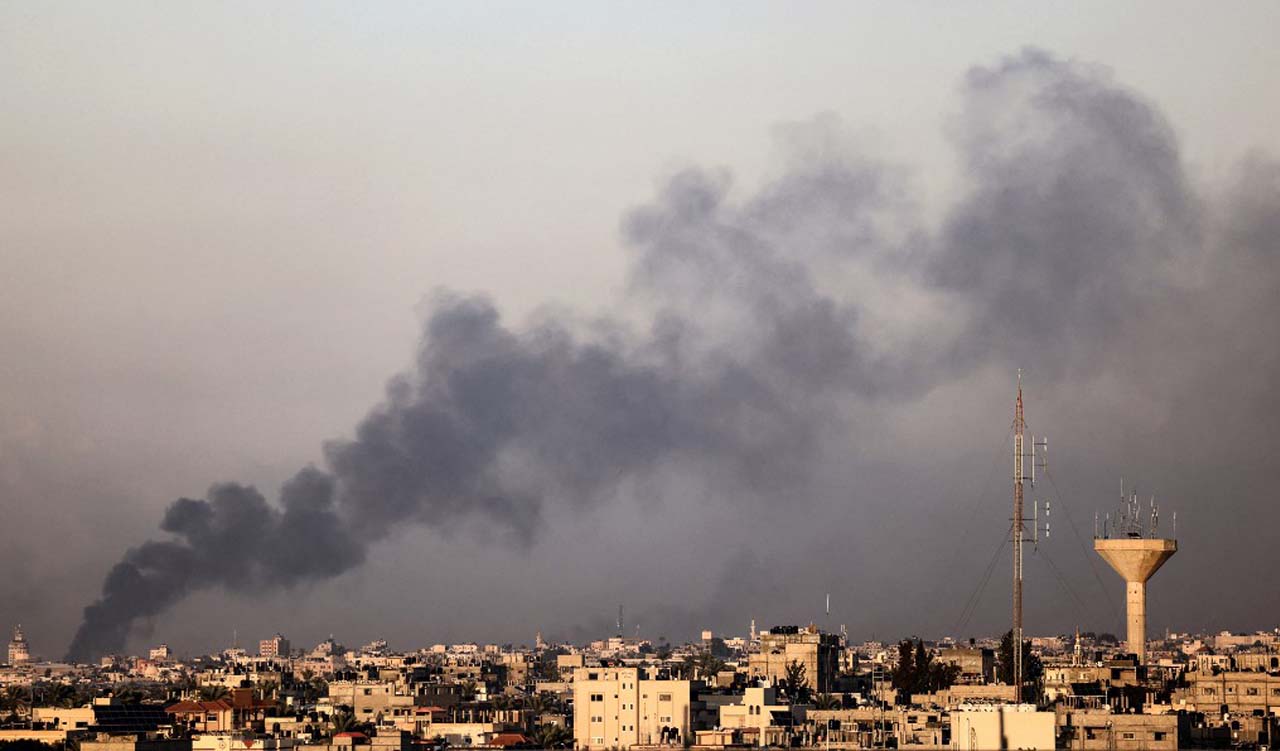'Ecocide': how war and climate change are often linked

The link between climate change and war has been a running theme at COP28, highlighting how many countries suffer from both deadly conflict and environmental disasters.
At the UN climate talks in Dubai, war-torn Gaza, Yemen, Syria and Ukraine and have made their voices heard, complaining about the environmental impact of constant fighting.
"Ecocide," read a slogan in Ukraine's pavilion, which was covered with posters detailing the environmental impacts of Russia's invasion.
A display showed the remaining half of a house, one of many hit by the destruction of the Kakhovka dam in June. Russia and Ukraine have traded blame for the disaster.
The other side of the story is how climate destabilisation and a scramble for resources can push climate-vulnerable countries into war.
Seventy percent of the most climate-vulnerable countries are also among the weakest politically and economically, according to the World Bank.
In Yemen, a parched country on the southern fringe of the Arabian Peninsula, a grinding eight-year civil war has increased pressure on diminishing water supplies, Yemeni Minister of Water and Environment Tawfiq Al-Sharjabi told AFP.
"Conflicts contribute a lot to increasing the suffering of citizens through their impact on environmental resources in general and water resources in particular," he said.
South Sudan President Salva Kiir Mayardit told world leaders gathering at the start of COP28 that many of his people had been displaced by fighting over water.
"Peace and security are clearly affected as a result of climate change," he said on Saturday, wearing his trademark black cowboy hat.
Fire and floods
After nearly two years of war in Ukraine, experts say the environmental damage will affect generations to come.
As well as the Kakhovka dam disaster, which caused massive, deadly flooding, the conflict has generated about 150 million tons of CO2 emissions, mostly from fuel and fires, a deputy Ukrainian minister said this week, citing a study by the Initiative on GHG Accounting of War.
Nearly 30 percent of Ukraine's forest zones and about one-fifth of its natural parks have been affected by the war, said Ruslan Strilets, minister of environmental protection and natural resources.
COP28 became the first of the UN's Conference of the Parties to hold a thematic day dedicated to peace, drawing a link between war and climate change, and urging more funding for the most troubled countries.
Libya, Yemen and Syria, all territorially contested states gripped by war, are mostly locked out of climate finance because they don't meet the requirements set by donors at multilateral institutions.
All have weak central governments, and with a high risk that aid money will end up in the hands of militants, many donors stay away.
